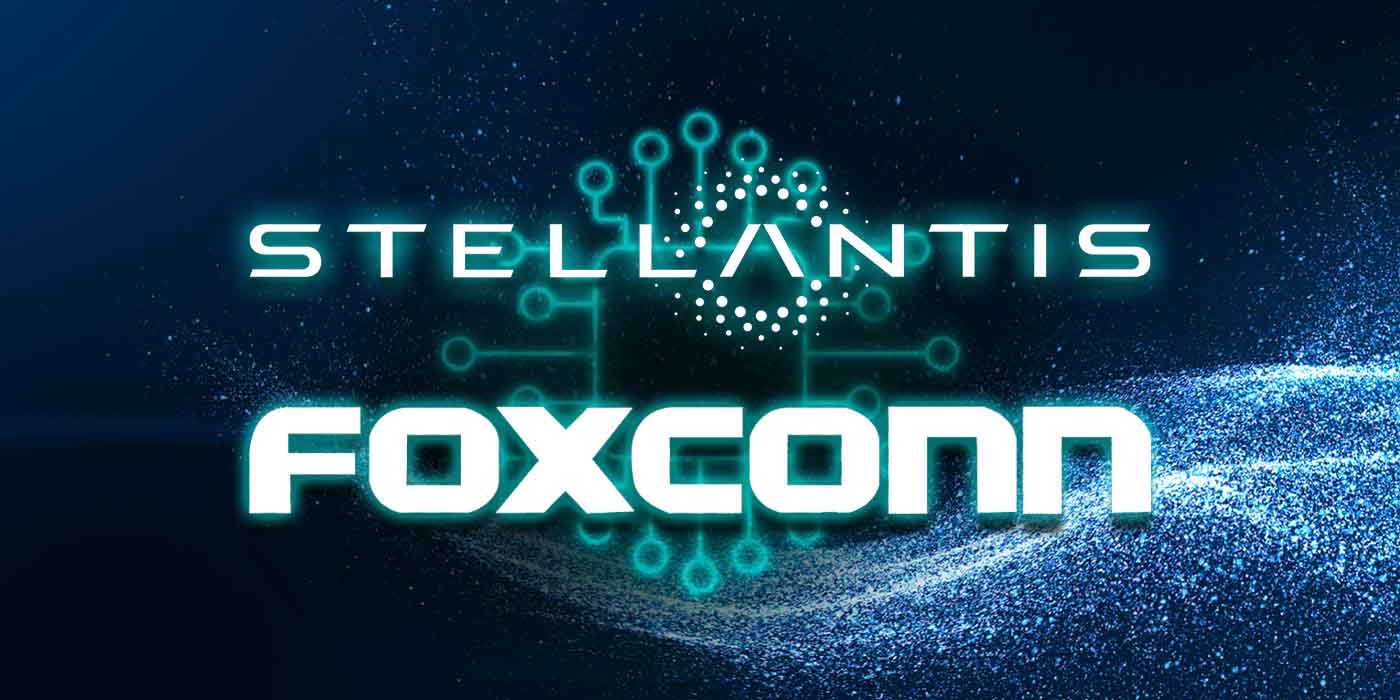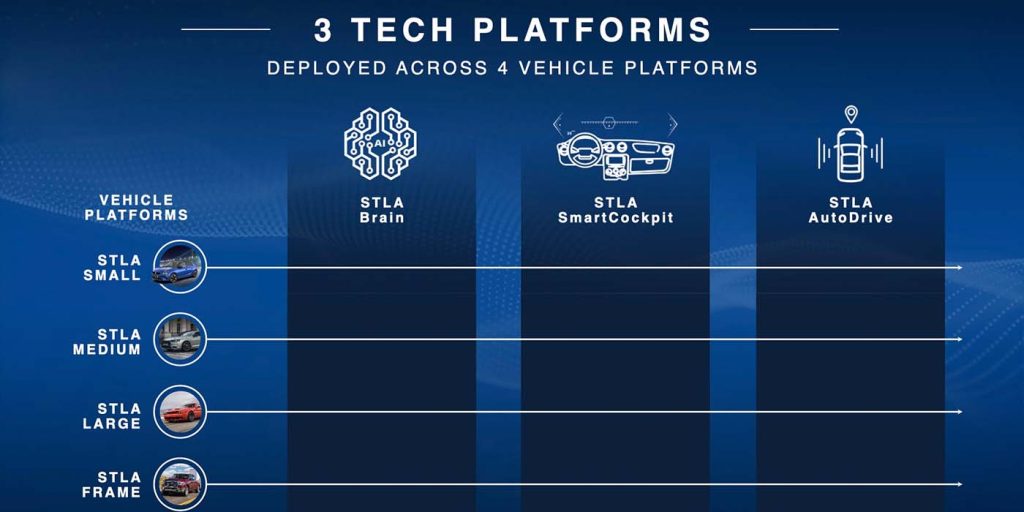
Dutch automotive conglomerate Stellantis announced the forming of a new joint venture with Hon Hai Technology Group, better known as Foxconn, to develop and scale a family of state-of-the-art semiconductors for next-generation EV platforms. Stellantis and Foxconn will each bring their own expertise to the JV, which should eventually cater to the entire automotive industry.
While Stellantis ($STLA) is by no means leading the global transition into battery electric vehicles, it has made large strides in recent months, despite the public waffling of its CEO Carlos Tavares. We really started taking the company’s change of attitude seriously last fall, when Stellantis Europe’s head, Uwe Hochschurtz, broke from Tavares claiming, “The people have decided: we will be purely electric.”
Following a growing success in EVs overseas, Stellantis has doven head first into a North American EV transition on the wings of beloved brands like Ram and Jeep. At the same time, we’ve seen the company invest into new technologies like lithium-sulfer chemistry to deliver lower cost EV batteries stateside.
From a global standpoint, Stellantis has formed joint ventures with companies like Galloo in order to recycle end of life vehicles and establish a more circular automotive economy. Stellantis’ latest joint venture will deliver advanced semiconductors alongside a leader in electronic component manufacturing – Foxconn.

Stellantis looks to feed global semiconductor demand
According to a press release from Stellantis, it has formed a company alongside semiconductor manufacturing company Foxconn, called SiliconAuto. The new company builds upon a non-binding memorandum of understanding between the two OEMs signed back in late 2021.
Today’s result is a 50/50 joint venture to “tailor chips aimed at new generation of automotive industry vehicle platforms.” The partners state that SiliconAuto will combine Stellantis’ understanding of global mobility needs with Foxconn’s development and manufacturing expertise, particularly in the world of Information and Communication Technologies (ICT).
Stellantis states its new generation of advanced semiconductors will eventually support its future EV platforms, in addition to its STLA Brain software architecture. Foxconn also intends to use the semiconductors in its own vehicles, as well as those it manufactures for other OEMs. Stellantis CTO Ned Curic spoke to the potential of the semiconductor technology expected to come from the new joint venture with Foxconn:
Stellantis will benefit from a robust supply of essential components, which is critical to fueling the rapid, software-defined transformation of our products. Our goal is to build vehicles that seamlessly connect with our customers’ daily lives and deliver class-leading capabilities years after they leave the assembly line. With this joint venture, we can create purpose-built innovations with an efficient partnership.
The partners state that SiliconAuto will be managed by executives from both companies and headquartered in the Netherlands. No word yet on where the semiconductors will actually be manufactured, but Foxconn currently operates 173 campuses across 24 countries, so there are plenty of options.
Stellantis expects SiliconAuto to begin delivering semiconductors for new EV platforms in 2026.
FTC: We use income earning auto affiliate links. More.



Comments